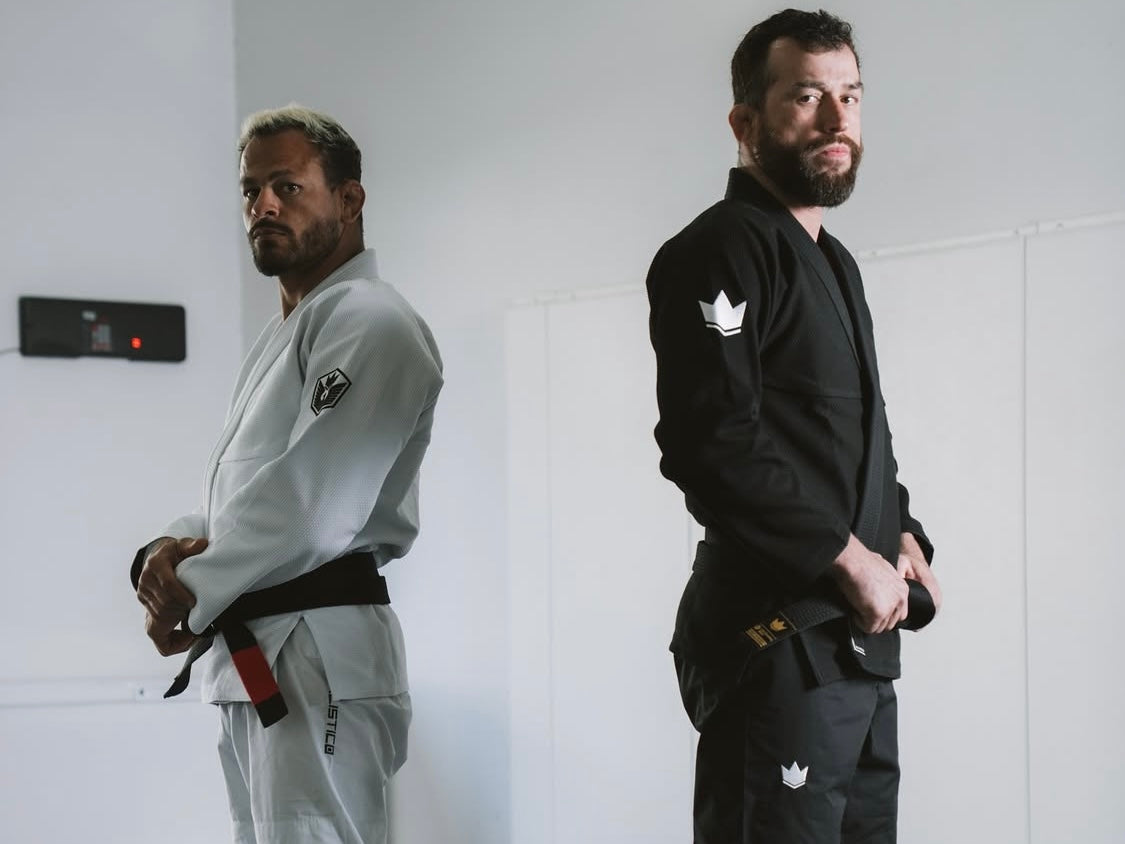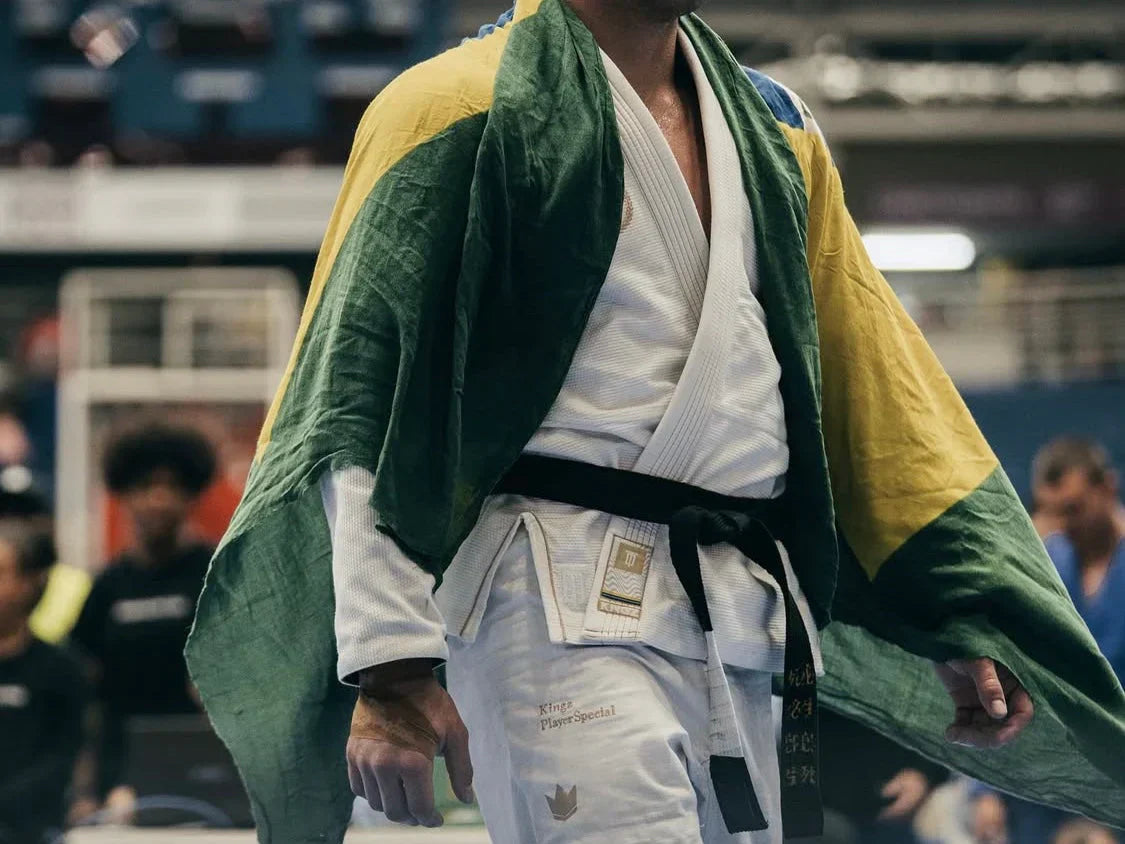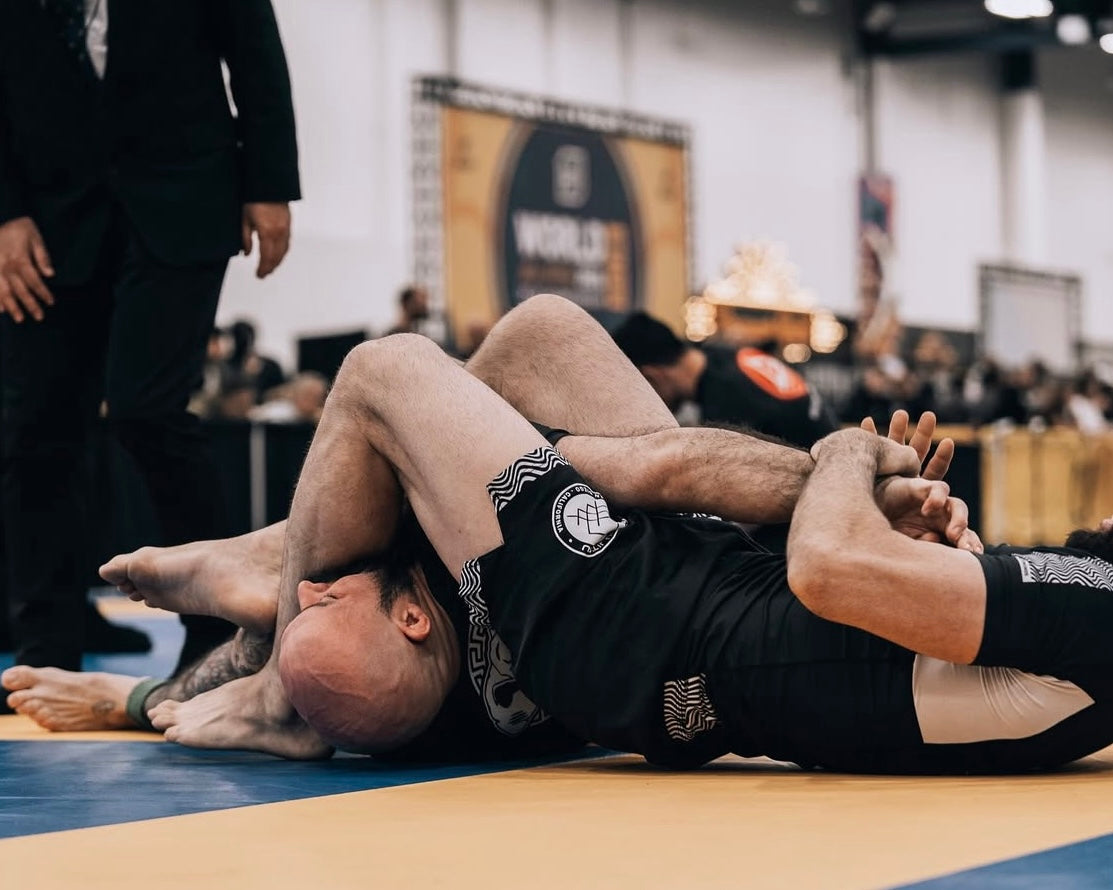News
-
If you're reading this, you've likely stumbled into some Brazilian jiu-jitsu gym - either on purpose or on accident - and you've found yourself staring like a deer in headlights when your coach or training partner says a word that you have never encountered. Never fear, we are here for you.
As you'll come to find out, jiu-jitsu is more than a sport or martial art. It's an entire culture, and as with any culture, it comes with its own specialized lingo. Sometimes the words are universal across the BJJ community, sometimes they are specific to your own academy or team affiliation. It's the same phenomena you've come to expect from, say, northern UK versus southern.
What's important to remember is: the longer you spend on the mat, the more you'll become familiar with the "jiu-jitsu language." It's just like going to a different country and immersing yourself in the language; you're going to begin to recognize words relatively quickly, then you'll understand more and be able to converse with others, and eventually you'll become fluent yourself! But if you want to get a leg up on that particularly journey, we've created this cheat sheet of important jiu-jitsu words that you should know.
-
Grow up on the wrestling mat? Yeah, we didn’t think so. Otherwise you probably wouldn’t be here, reading this right now. Don’t worry, you’re in good company.
Incorporating wrestling into your Brazilian jiu-jitsu game is not easy. Just like jiu-jitsu, wrestling is an art, and one that takes many years to master. It’s also generally takes a much greater toll on your body than the average BJJ class, which is why many jiu-jitsu practitioners tend to just pull guard rather than risk a bad takedown.
However, opting to avoid wrestling altogether, rather than slowly but surely incorporate a few takedowns into your game, is a shame. Not only that, but in today’s sport, you really come to the mat at a severe disadvantage - especially if you are or plan to be an avid competitor - if you don’t have at least some basic understanding of wrestling.
-
Last month featured a absolute spectacle of Brazilian jiu-jitsu: the IBJJF Jiu-Jitsu Con, certainly one of the biggest and most highly-anticipated events in jiu-jitsu today. Competitors and fans alike from around the world showed up in Las Vegas for the event, to compete, attend high-level seminars, get autographs from their favorite athletes, and to shop the numerous jiu-jitsu brand tents.
It was the sheer number of this last one that is noteworthy, and gave testament to just how much the BJJ industry has grown over the last couple of decades.
-
There are untold millions of people in the world today practicing Brazilian jiu-jitsu. Travel to any major city on the globe, and you'll likely find a BJJ academy, or two, or ten. Those countries in which it has had several decades to take root, you'll even find at least one place to train in nearly all the small towns, too.
There is no doubt about it: BJJ is one of the fastest growing sports in the world. However, amidst the excitement of each new competition season, and the latest wave of BJJ superstars, it's important that we don't forget BJJ's history.
If you start with the creation of the very first Brazilian jiu-jitsu academy in the world, BJJ is really only 100 years old. Yet, it's roots - the roots of all grappling-style martial arts - run far deeper. And there's no denying the influence Japanese jujutsu and judo had upon this sport we all love so much. Feel free to go down that rabbit hole if you have the time.
However, that mere century is full of remarkable events that had they never occurred, you might not be here, reading this, today. So, in honor of those moments, take another moment to brush up on the last 100 years of BJJ history. Don't worry, we've kept it short a sweet.
-
It doesn't matter who you are and what you do - no matter how fit, how young, how careful you might be - you will get injured at some point during your Brazilian jiu-jitsu career. You might even get injured multiple times. Even worse, you might get injured off the mat, doing something silly, like getting up from bed too fast... or sneezing.
It happens, to all of us. Ideally, it's just a minor injury; something that a few ibuprofens and a good night's rest will resolve. However, at times it will be a major injury that will force you off the mat for several weeks, if not months. And that sucks, we know.
It's when you sustain a major injury that returning to the mat can be tricky. Maybe you've strained, tore or broke something that requires significant medical attention and follow-up rehabilitation. Even when you're released to train again, it's unlikely that your body will be back to its pre-injury state. That's when you have to be careful, and have a solid plan of action, so that you don't re-injure yourself, setting you back yet another indeterminate amount of time.





